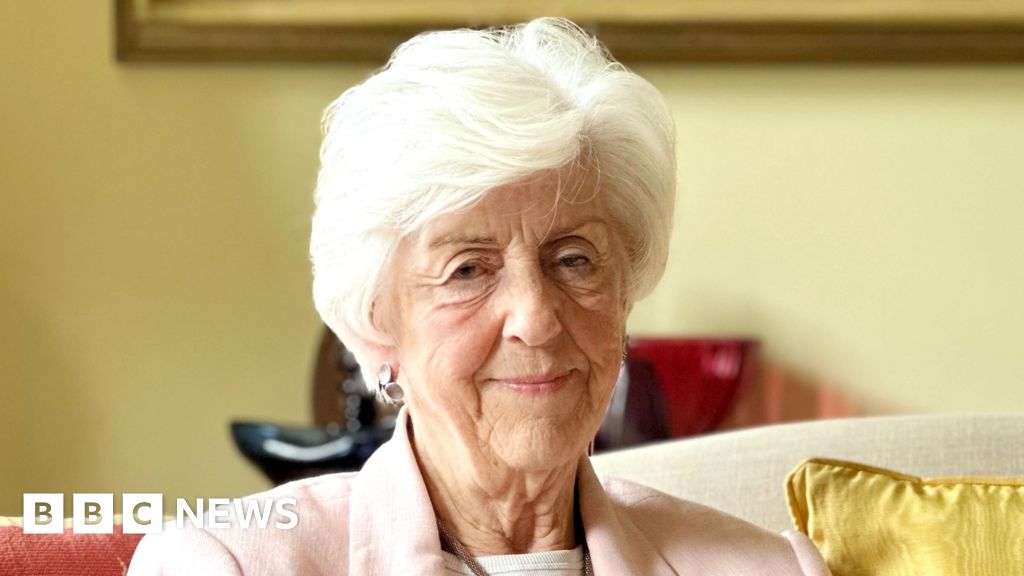Rachel Reeves is preparing to unveil her highly anticipated spending review, setting out how much money the NHS, schools, police and other public services will get over the next few years.
The chancellor will emphasise plans to "invest in Britain's renewal" by spending an extra £113bn on infrastructure, such as energy and transport projects in her speech on Wednesday.
But some government departments are likely to face real-terms cuts, as the chancellor prioritises health and defence budgets.
The review will take the Labour government up to the next general election, likely in 2029, with day-to-day spending to be outlined for the next three years and investment budgets for the next four.
Ministers have been in tense negotiations with the chancellor over the funding settlements for their departments.
Home Secretary Yvette Cooper was the last to agree a deal on Monday, after police chiefs called for more money, while Housing Secretary Angela Rayner reached an agreement on Sunday.
Rayner's department is expected to receive £39bn for a programme to boost social and affordable housing over the next 10 years.
A government source said this investment would help ministers hit their target of building 1.5 million new homes by 2030.
The chancellor will also commit to extending the £3 bus fare cap in England until March 2027.
In a speech last week, Reeves suggested she had turned down requests for cash from ministers and argued a squeeze on funding was a "product of economic reality".
The government's spending plans have been impacted by sluggish economic growth, higher government borrowing costs and global instability.
In her autumn budget last year, the chancellor announced tax rises worth £40bn to fund the NHS and other public services.
She is expected to say on Wednesday that her spending plans "are possible only because of the stability I have introduced and the choices I took in the Autumn".
But the Institute for Fiscal Studies (IFS) think tank has warned tough choices are "unavoidable", with some departments facing spending cuts, when rising costs are accounted for.
Deciding how much money to give the NHS was "one of the most consequential decisions of the spending review," the IFS said.
The Department of Health and Social Care's (DHSC) day-to-day budget is planned to be £202bn in 2025–26, or 39% of total day-to-day departmental spending.
The IFS warned that a big increase in NHS funding would mean either real-terms cuts for other departments or further tax rises to come in the budget this autumn.
The chancellor has resisted calls, including from some of her own MPs, to relax her rules on borrowing, or to raise taxes further.
Reeves's self-imposed rules require day-to-day government costs to be paid for by tax income, rather than borrowing; and to get debt falling as a share of national income over a five year period.
Despite increasing tax on businesses, by increasing employer National Insurance contributions, she has so far stuck to Labour's manifesto commitment not to increase income tax, national insurance or VAT.
She will say on Wednesday: "I have made my choices. In place of chaos, I choose stability. In place of decline, I choose investment. In place of retreat, I choose national renewal.
"These are my choices. These are this government's choices. These are the British people's choices."
She will also highlight infrastructure spending, such as the £14bn for the Sizewell C nuclear power plant and £15.6bn for local transport projects.
"The priorities in this Spending Review are the priorities of working people," she will tell MPs.
"To invest in our country's security, health and economy so working people all over our country are better off," she will say.
Conservative shadow chancellor Mel Stride accused Labour of "spending money it doesn't have, with no credible plan to pay for it".
"That means more borrowing, more debt, and, inevitably, more tax rises in the Autumn budget," he said.
"Don't be fooled. We can't afford Labour."
The Liberal Democrats urged the the Labour government to take immediate steps to boost economic growth to avoid any spending cuts to public services.
"From social care to neighbourhood policing, this Labour government is at risk of failing to deliver the change that people were promised," Liberal Democrat Treasury spokesperson Daisy Cooper said.













